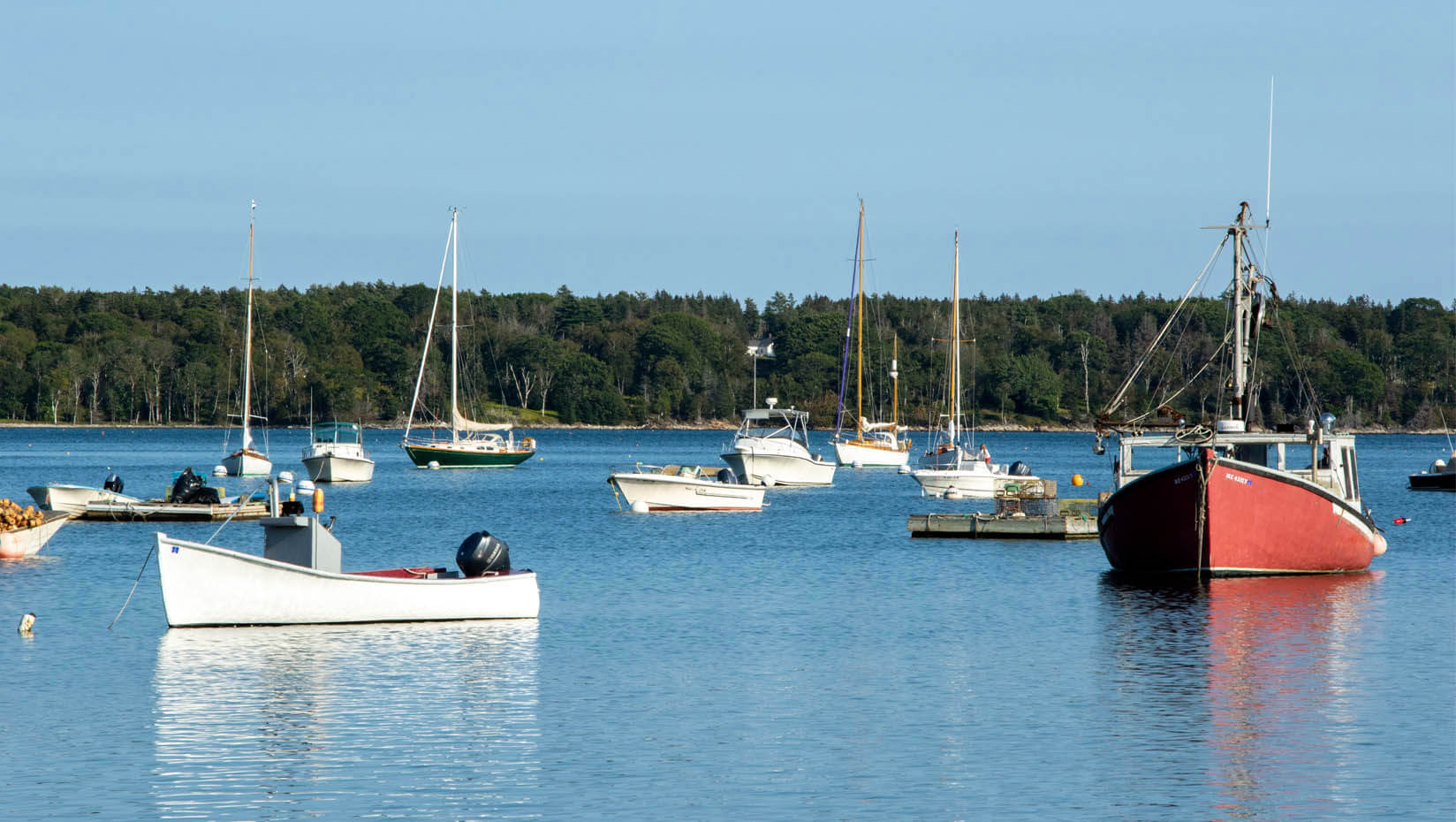
Sea Grant, DOE, NOAA Fisheries fund six projects for the coexistence of offshore energy with Northeast fishing and coastal communities
The Northeast Sea Grant Consortium — in partnership with the U.S. Department of Energy’s Wind Energy Technologies Office and Water Power Technologies Office, and NOAA’s Northeast Fisheries Science Center — today announced six projects to advance social science and technology research on offshore renewable energy in the Northeast United States.
This funding opportunity, first announced in March 2021, seeks to catalyze research for the coexistence of marine energy, including wind, current, tidal and wave energies, with Northeast fishing and coastal communities. The innovative funding partnership applies the Sea Grant model to connect science and tools directly with communities and ocean users.
The selected projects were collectively awarded over $1.1 million in federal funds, with each project matching 50% in nonfederal funds. The two-year projects have roots across the Northeast:
- Building Capacity for Participatory Approaches to Community Resilience and Ocean Renewable Energy Siting (Project Lead: Heather Leslie, University of Maine, Orono, Maine) will characterize values and beliefs in three communities to understand where ocean renewable energy is a good fit for people and place, and develop a community tool kit with maps, surveys and participatory practices that can be applied across the Northeast.
- Can Proprietary Commercial Lobstering Data be Used to Inform Offshore Wind Development? (Project Lead: Kate Beard-Tisdale, University of Maine, Orono, Maine) will create a standardized procedure for constructing representations of the Maine lobster fishery using data and knowledge from individual fishermen, and develop data product models and sample products that will inform fisheries management and marine spatial planning.
- Community Engagement and Stakeholder Perceptions of Floating Offshore Wind (Project Lead: Alison Bates, Colby College, Waterville, Maine) will develop a stakeholder database, survey tools and holistic outreach strategy to evaluate community perceptions of offshore wind, identify the capacity and necessary conditions for stakeholders to coexist with offshore wind, and present recommendations for equitable solutions.
- Evaluating Messaging, Communication Networks, and Public Engagement on Offshore Wind Development in Southern New England (Project Lead: Emily Diamond, University of Rhode Island, South Kingstown, Rhode Island) will analyze public engagement strategies, messages, networks, and sources used to communicate and engage communities and stakeholders in decision making for proposed offshore wind projects, and incorporate community perspectives to make recommendations for effective and equitable messaging and strategies.
- Regional Community Attitudes Regarding Procedural and Distributive Justice Dimensions of Southern New England Offshore Wind Development (Project Lead: David Bidwell, University of Rhode Island, South Kingstown, Rhode Island) will assess community concerns and research questions regarding procedural, distributive and recognitional justice dimensions of offshore wind projects in southern New England, and work to address barriers within and among communities to ensure equity and well-being for a just energy transition.
- Achieving Community Resilience by Optimizing Symbiotic Offshore Renewable Energy and Food Systems (Project Lead: Maha Haji, Cornell University, Ithaca, New York) will develop a mapping tool for spatial planning allowing for the integration of multiple ocean uses in the same area. The goal is to enable symbiosis between renewable energy and food systems and empower stakeholders, fishers, aquaculture farmers, and developers to make informed decisions for long-term resilience.
“The United States has abundant wind and water power resources along our coastlines that can help our nation, and our coastal and marine communities in particular, reach a 100% clean energy economy with net-zero emissions no later than 2050,” said Kelly Speakes-Backman, principal deputy assistant secretary for the Office of Energy Efficiency and Renewable Energy at the U.S. Department of Energy. “At the same time, we recognize communities and local economies depend on the ocean for their livelihoods and way of life. Through this research partnership with the Northeast Sea Grant Consortium and NOAA’s Northeast Fisheries Science Center, we can better understand and optimize these shared uses of the ocean.”
“The Northeast Sea Grant programs are pleased to be partnering with the DOE’s Wind Energy Technologies Office and Water Power Technologies Office, and NOAA’s Northeast Fisheries Science Center to fund research on this timely topic, which we hope will provide decision makers with guidance on how different users of resources in the marine environment in our region can coexist,” said Matt Charette, director of the Woods Hole Sea Grant program.
As the United States continues developing and deploying offshore renewable energy technologies, the Northeast Sea Grant Consortium and federal partners will continue to engage the public and decision makers in collaborative research that supports resilient communities and economies.
“NOAA’s Northeast Fisheries Science Center has joined Northeast Sea Grant Programs and Department of Energy to advance needed socio-economic research,” said Jon Hare, science and research director of the Northeast Fisheries Science Center. “Understanding the social and economic connections between offshore wind energy and existing ocean users such as commercial and recreational fisheries is critical to supporting coastal communities.”
To effectively translate the results of the funded research for use by communities, NOAA’s Northeast Fisheries Science Center designated $350,000 in federal funding in parallel with the research projects. As part of these efforts, Northeast Sea Grant program extension staff will work directly with fishing communities and other stakeholders to provide scientific, legal and policy research support in response to fishing community needs.
This research and extension will benefit a variety of ocean users and stakeholders by providing the community-focused tools required for equitable and sustainable development of the Northeast’s coastal and ocean resources.
Contact: Contact: Hannah Robbins, hannah.robbins@maine.edu
